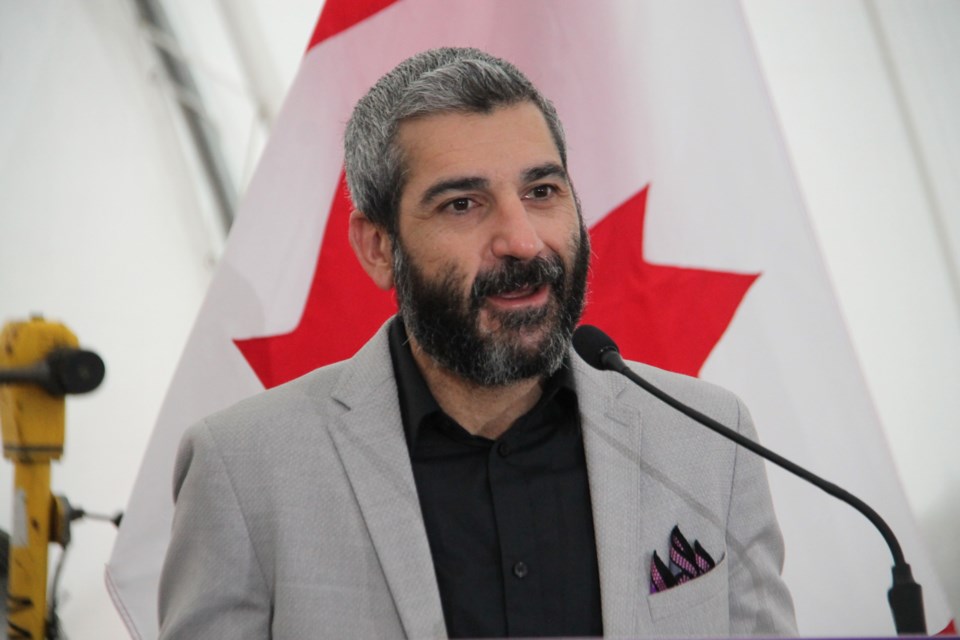Ontario Minister of Health Sylvia Jones released a plan entitled Your Health: A Plan for Connected and Convenient Care on Thursday as the province attempts to fix a battered health care system.
“We also recognize that these things won’t always happen overnight. These are going to take some time but a lot of these initiatives have already begun,” said Sault MPP Ross Romano speaking to SooToday.
Long waits at emergency departments are one of the issues the government is aware of and is taking steps to improve, Romano said.
“That’s definitely something that is very concerning for us here locally and across the province.”
Romano said more nurses are needed in emergency rooms and pointed to a local example of what the government has done in an attempt to address the need for newly trained nurses.
“You have a nursing degree program here at Sault College that was announced a few years ago, and now you’re seeing the first class will be coming out of Sault College with a degree which is going to keep a lot of those nurses here locally.”
“That will help us reduce our wait times,” Romano said.
Permission for pharmacists to prescribe treatments for 13 minor ailments effective Jan. 1 will also take some pressure off crowded emergency rooms, the Sault MPP said.
“It’s making it easier for us to access care faster and at the right place when and where we need it most.”
“We’ve expanded the ability for local doctors to do procedures of a minor nature right within their own office which is reducing the amount of surgical time that is required in surgery rooms,” Romano said.
Aware that ambulance offload times are also an issue at SAH ED, Romano said “we’ve created an opportunity for paramedics to be able to treat people with minor ailments where that would prevent them from having to attend at the emergency room, which would also extend to the way our local paramedics can operate.”
“If they can be treated immediately by a paramedic in an ambulance and they won't need to be attending at the hospital and at the emergency room, then that ought to be where they receive that care.”
Romano said $74,000 in funding has been put aside for an ambulance offload nurse to be on duty to assist patients at SAH.
“(The government is) providing paramedics more flexibility to treat people who call 9-1-1 at home or on scene in the community rather than in emergency rooms. Successful 9-1-1 models of care have been expanded in more than 40 communities across the province, resulting in patients receiving the care they needed up to 17 times faster with 94 per cent of patients avoiding the emergency room in the days following treatment,” the government wrote in a release issued on Thursday.
Romano said a “tremendous amount of investment” has already gone into more CT scans, more cataract surgeries, ophthalmic surgeries and an increased number of PCI surgeries for cardiac patients at SAH.
He said government funding has doubled the number of surge beds at SAH to the tune of $2.5 million and that more than $1 million has been spent on ALC beds.
“Looking at access to more health care workers, just this past weekend we talked about a micro credential program that is being operated through Sault College where we’re training more nurses in wound care, which is reducing the number of amputations across the north.”
That program was funded by the Ministry of Colleges and Universities in the amount of $462,000.
More care from pharmacists, mental health and substance use support, more power for paramedics, new and upgraded LTC beds, medical school expansion and making it easier and faster to get publicly funded surgeries are all included in the government's plan released on Thursday.
The plan to spend more than $18 million in existing centres to cover care for thousands of patients, including more than 49,000 hours of MRI and CT scans, 4,800 cataract surgeries, 900 other ophthalmic surgeries, 1,000 minimally invasive gynecological surgeries and 2,845 plastic surgeries will not involve patients having to pay out of their own pockets in a privatized system, Romano said.
“We’re not operating private clinics in Sault Ste. Marie.”
“We’re operating through Sault Area Hospital and we’ve expanded funding to them significantly over the course of the last several years to be able to ensure the people of Sault Ste. Marie and the region of Algoma have better access to care at the right place and able to access it faster,” Romano said.
